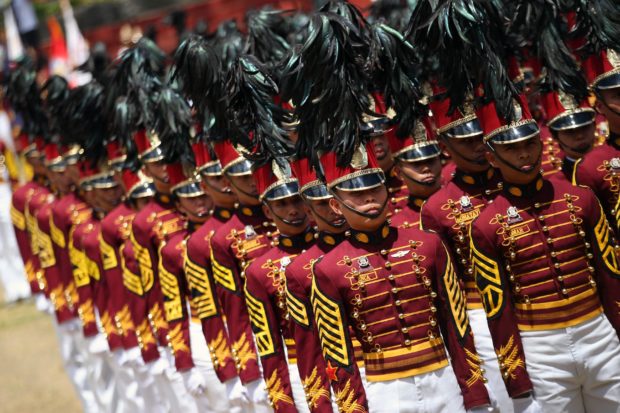
Graduates of the Philippine National Police Academy (PNPA) for Masidlak Class of 2017 march to formation to start the 38th PNPA Commencement Exercises in Camp General Mariano N. Castañeda in Silang, Cavite on March 24, 2017. (Photo by ROBINSON NIÑAL JR. / Presidential Photographers Division)
MANILA, Philippines — Training of police recruits would be more professional and instill more respect for human rights under the jurisdiction of the Philippine National Police (PNP), the Department of the Interior and Local Government (DILG) said on Saturday.
“We thank President Duterte for signing Republic Act 11279 as this further enhances the police training curriculum which will hopefully translate to the production of better police officers with utmost competency, high moral fiber, and respect for human rights,” Interior Secretary Eduardo Año said in a statement.
Año was referring to Republic Act No. 11279, which transfers the jurisdiction of training of recruited policemen to the PNP.
President Rodrigo Duterte signed the measure on April 12.
READ: Duterte signs law transferring police training jurisdiction from PPSC to PNP
Año said police training would be more professional as retired and active officers would become professors and instructors.
“With the PNP in-charge of the training, future cops will be able to learn skills and knowledge in policing and law enforcement direct from the horse’s mouth as retired and active PNP officers will form part of the corps of professors/instructors who will share their mettle and expertise on law enforcement,” Año said.
Año added that cases of hazing and abuses in police training would be prevented due to the transfer of powers to the PNP.
Under the new law, the Philippine National Police Academy (PNPA) and the National Police Training Institute (NPTI) will be under the supervision of the PNP instead of the Philippine Public Safety College (PPSC).
(Editor: Alexander T. Magno)